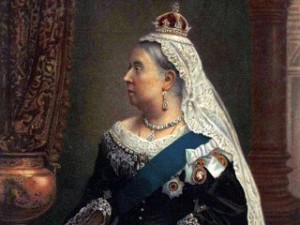As you can imagine, I like a good Royal documentary as much as the next person. A few years back, when the Queen celebrated her diamond jubilee, it was a cause of great joy to me that TV makers were inspired to turn their attention to the only other monarch to have marked that milestone. Victoria.
But as I’ve blogged before, something concerns me about what is entering the public consciousness as a result. Last week when ‘Queen Victoria’s children’ was re-run, I noticed again that social media was filling up with criticism of the late monarch.
Some of it was justified. She was a self-centred woman. She could be callous about and to, her children. If you made an enemy of her, she was anything but gracious. But this is only one side of the story; it’s time the other one was told. To that end, I want to offer a few #QuickFireThoughts.
To start with, when it came to parenting, it should be remembered that her 9 children were no picnic. The Prince of Wales in particular, indulged in antics that would drive almost any parent to distraction. She treated her youngest daughter horrifically when she announced she wanted to marry – but she also eventually embraced her son-in-law and helped advance him in life. All of this of course should be viewed against the backdrop that she was horrifically parented herself.
Aside from parenting, there were many admirable parts to her personality and character that deserve honourable mention:
- She was significantly less racist than her contemporaries – Her embracing of Indian servants enraged the establishment, but she would constantly defend them against the glare of the English superiority complex that was rampant. I’m not suggesting that her world view would survive the scrutiny of 21st century standards, but it was considerably more advanced than those around her.
- She embraced the underdog – Perhaps aware of her own heritage (she probably always felt like a first-generation immigrant despite being born in England) she was keen to champion the minority. Be it in her love of Scotland over England or her preference for the Jewish Disraeli over the establishment produced Gladstone, she often acted in a way that people would not expect their ruler to; this has to be to her credit.
- She placed less stock in hierarchy than most Royals – Perhaps seen most evidently in her relationships with her highland servants, Victoria craved informality in a way that often made other Royals, including her children, uncomfortable. She was also disturbed by the Germanic practice of morganatic marriages, which was when a continental noble chose to wed someone of lower social status. Such arrangements meant that a woman marrying a man of higher nobility could not claim his titles and precedence. She was glad no such practice existed in Britain.
- She genuinely valued friendship – The close associations she struck up were both unpredictable and frequent. While she never forgot that she was a Queen-Empress, she coveted connections that would allow people to approach her as something resembling an equal. Victoria was a woman who wanted at least some people to know her as a human being.
None of this is to suggest that the late matriarch was a forward-thinking liberal. She was vehemently opposed to women’s rights throughout her reign. But she was not the cold, callous egomaniac that recent documentaries have portrayed her as.
Or at the very least, that wasn’t all she was.
What do you think geeks? Am I being too hard on the documentary makers? Am I too quick to overlook the faults of the Queen-Empress? Have I over-emphasised her positive character traits? I want to know what YOU think?
